6 Good Coconut Flour Substitutes
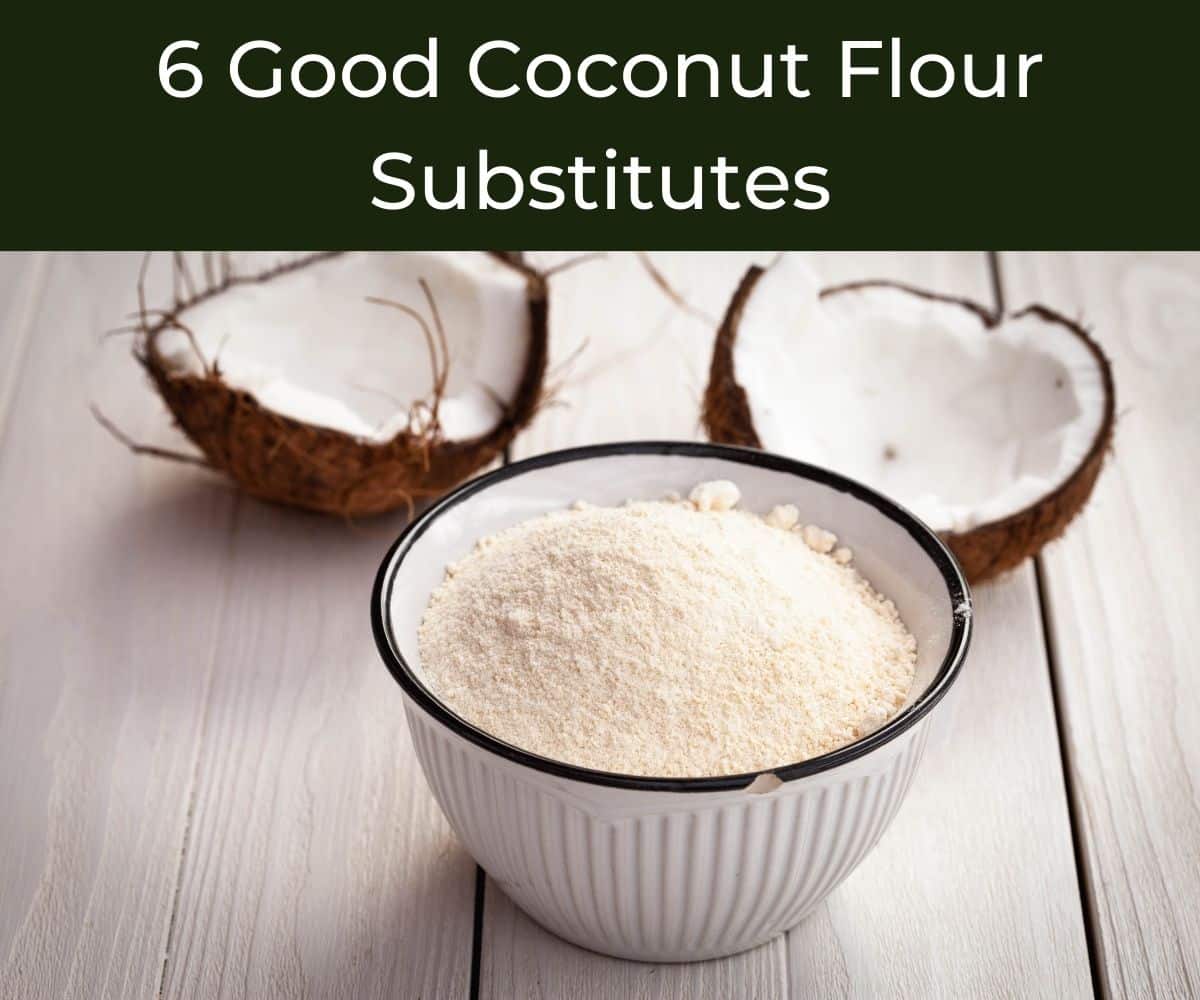
Coconut flour is ground, dried coconut meat, which is often the by-product of coconut milk production. It is very popular in certain diets because, in general, most people can consume coconut flour.
It is suitable for anyone who is vegan, gluten-free, low carb, keto, or just about anything else. It does not contain any of the main allergens of soy, corn, or nuts, and is very low in sugar and carbs. It is used in baked goods, but also to thicken sauces and in other types of dishes. It does have a mild coconut flavor, so be warned if that’s not your thing!
Coconut flour is very white and coarsely ground. It contains very small flakes of shredded coconut and is different from coconut milk powder or shredded coconut in that it contains no sugar or anything other than coconut. It absorbs oils and liquids well and can be consumed raw, which it what makes it so different from wheat flour or cornstarch.
Coconut flour is a versatile flour but tends to be quite expensive. It is becoming more popular as plant-based and keto diets become more popular, but it can still be tricky to find in some areas. If you cannot find it, or if you cannot eat coconut, we’ve compiled this list of six alternatives to coconut flour.
1. Almond Flour or Almond Meal
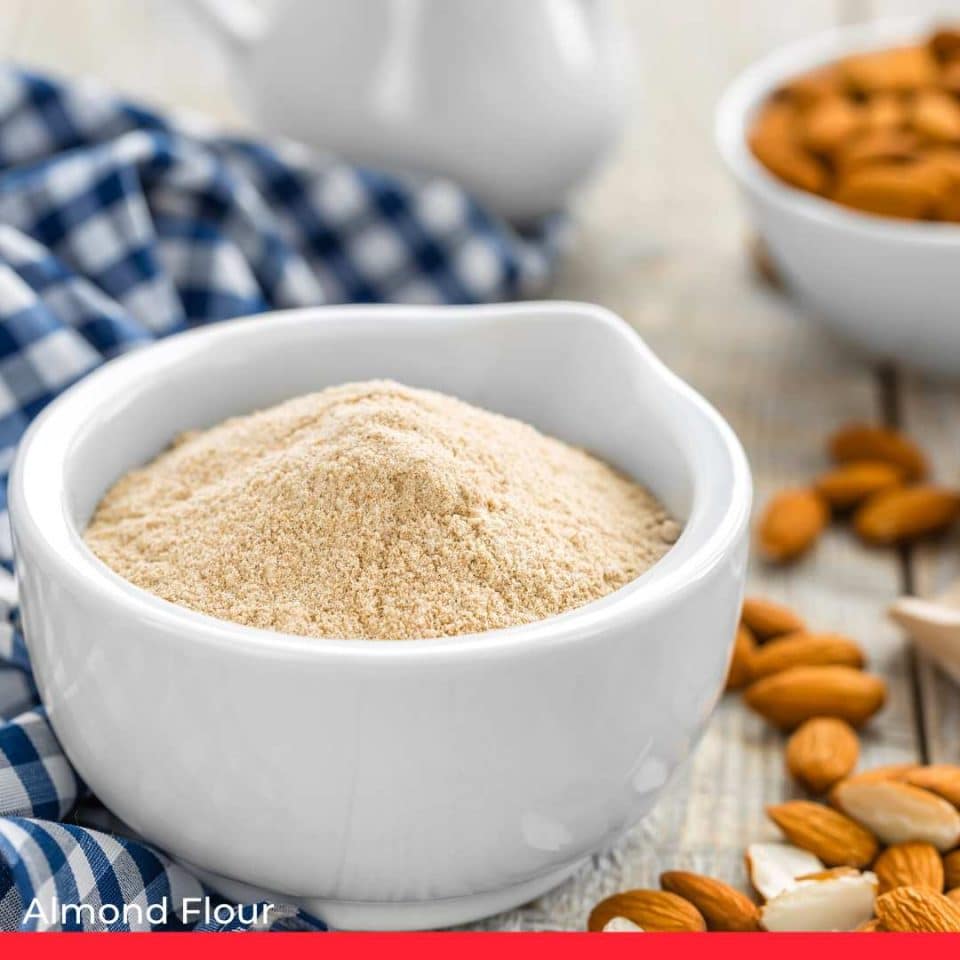
Almond flour (or meal, as it is sometimes called) is made from finely ground raw, peeled almonds. It is slightly sweet and makes delicious, gluten-free baked goods! High in nutrients, especially fiber and protein, almond flour is a great alternative to coconut flour, and can be used 1:1.
It is about the same price as coconut flour (more expensive than regular flour) but should be quite easy to find (or even make!).
Almond flour is one of the easiest to make… assuming you have a high-power blender! You can achieve this by blending raw almonds on high for a few minutes, making sure you get any big clumps out. Whether homemade or store bought, almond meal is great because, like coconut flour, you do not have to cook it and it can be consumed raw with no problem.
On the flip side, almond meal can be quite expensive and won’t be suitable for anyone with a nut allergy, which is something important to consider.
2. Flax Seed or Flax Meal
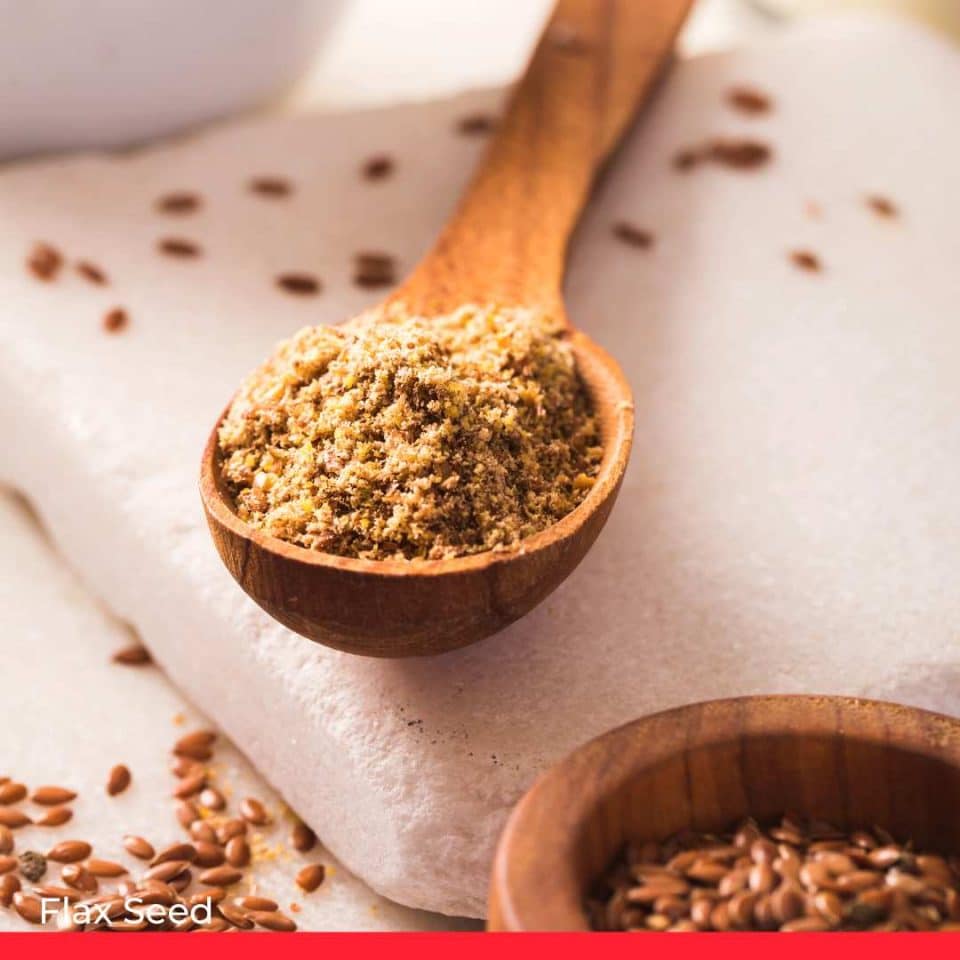
Flax seeds are high in protein, low in calories, and really tasty! Like coconut, they also have a natural thickening property.
When flax seeds are ground (make sure you opt for raw or golden flax seeds, and that they are very finely ground), they can be mixed with water to create a slippery, glue-like substance that can be used to thicken baked goods and sauces.
The downside to flax seed is that because it is considered a healthy food, it can be quite expensive (much more than some of the other options on this list) and due to its high fiber content, it does have a bit of a gritty texture, even when finely ground. It may also slightly discolor whatever you’re baking so take care.
3. Rice Flour or Brown Rice Flour
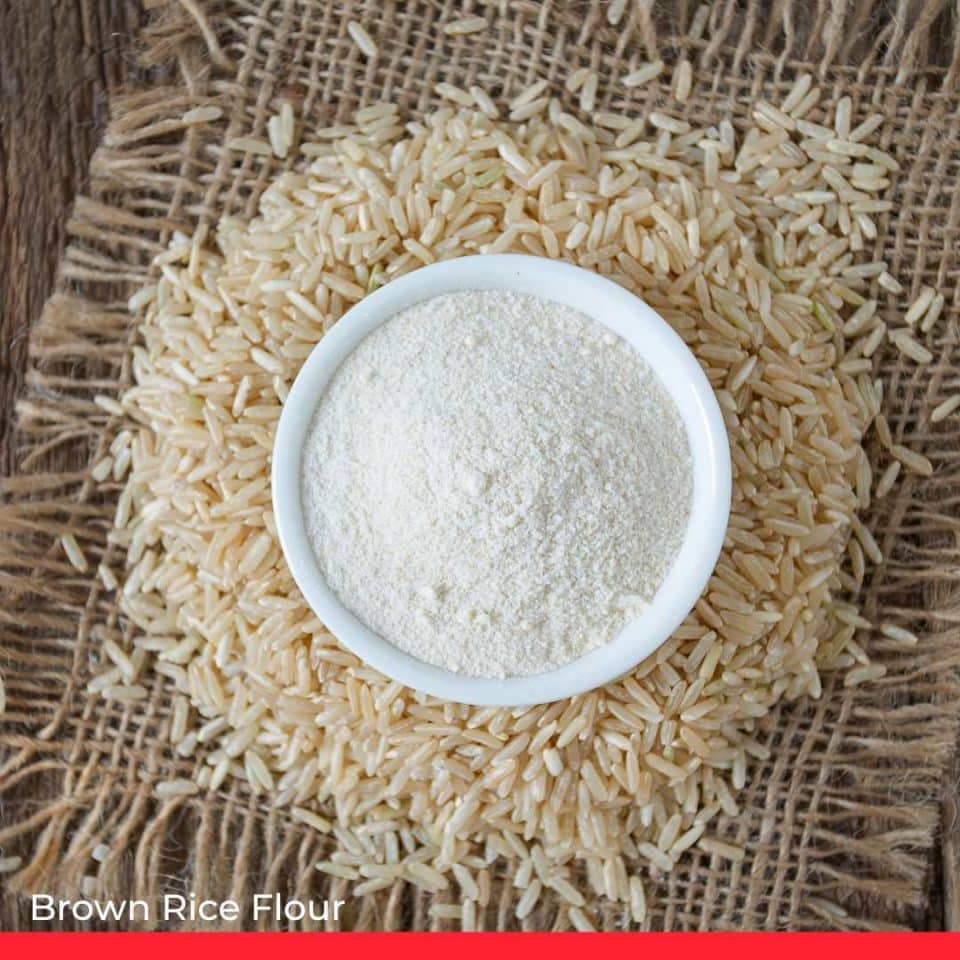
Rice flour is an underrated flour that can be used in place of coconut flour because it has a similar texture and, like coconut flour, is free from nuts, gluten, soy, and sugar.
Rice flour will be higher in carbs and needs to be cooked thoroughly, but it is generally quite cheap and available in most stores. Brown rice flour has a certain grittiness to it and is much healthier.
Either can result in a sandy or gritty baked good, so it is sometimes recommended that you blend rice flour with another type of flour. When using in place of coconut flour, you can substitute 1:1, but just make sure it is thoroughly blended and cooked all the way, otherwise, it will have a very bad mouthfeel. Rice flour is nutrient dense and very mild in flavor and has many benefits and we recommend you give it a try!
4. Chickpea or Garbanzo Flour
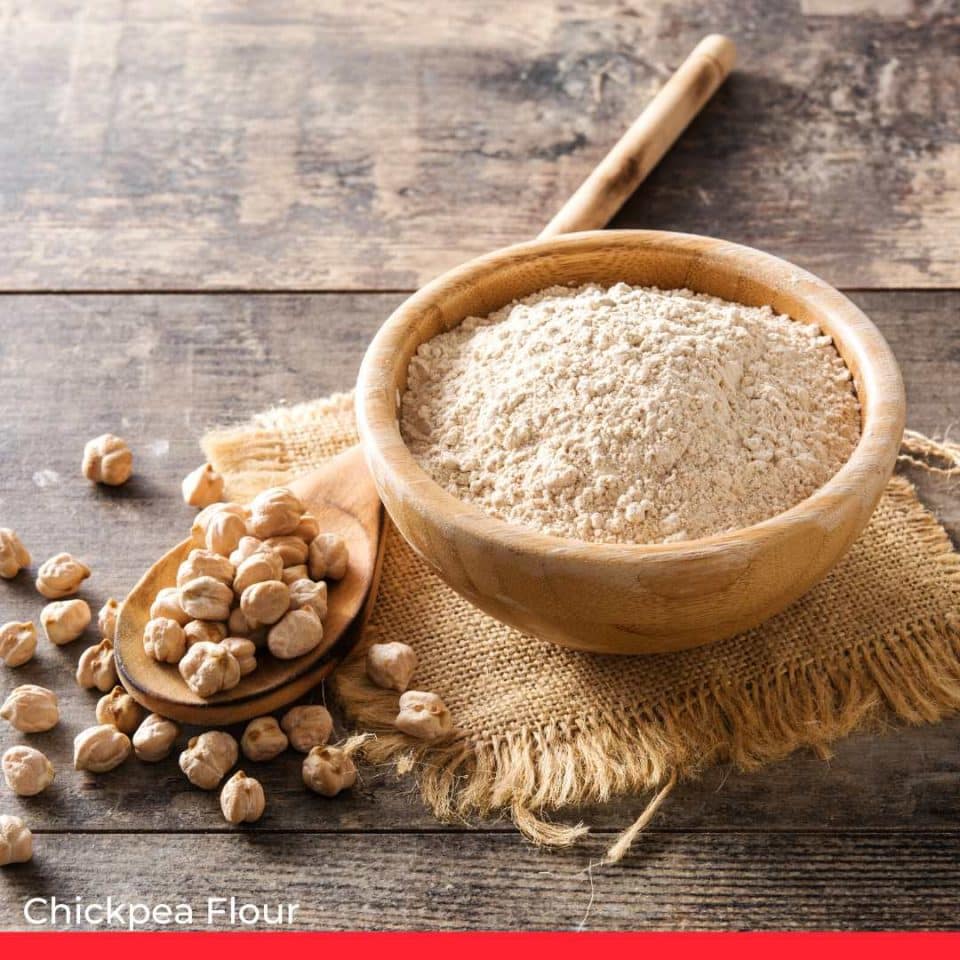
Chickpeas, as you may know, are a pulse that is super high in protein, carbs, fiber, and iron. Chickpea flour tends to be pale yellow to white and ranges from coarse to superfine.
It contains no gluten and is popular in Indian, Caribbean, and Middle Eastern dishes. When ground, chickpea flour can be used in a variety of dishes, primarily in baked goods, where it lends a sweet, rich flavor as well as loads of nutrients that you might not get with other flour.
Chickpea flour is readily available and relatively affordable. Like rice flour, chickpea flour cannot be consumed raw and must be fully cooked, meaning it might not be a good replacement in all cases. But in any recipe that requires a gluten-free flour, chickpea flour will replace coconut flour, easy pea-sy!
5. Cornstarch
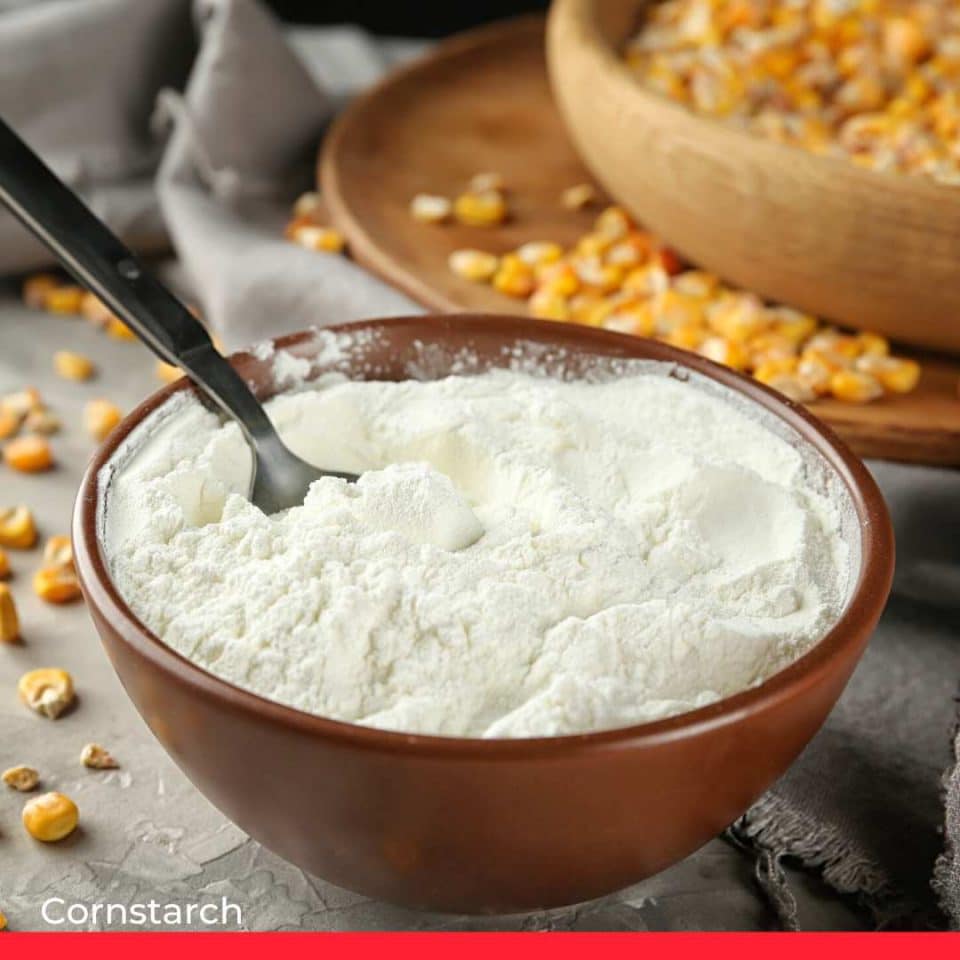
Cornstarch, like coconut flour, is also gluten-free, nut-free, sugar-free, and oil-free. Cornstarch is primarily used for thickening sauces or for coating meats or fish for searing.
When thickening sauces, cornstarch must be cooked out. It is also helpful to mix cornstarch into some cold water first, which is not necessary with coconut flour… one of its downsides.
The other downside of using cornstarch is that cornstarch is very heavily processed and is basically stripped of any nutritional qualities. The upside is that it is incredibly inexpensive and you will be able to find it anywhere so you will not have to go searching like you might have to with coconut flour!
6. Arrowroot Flour
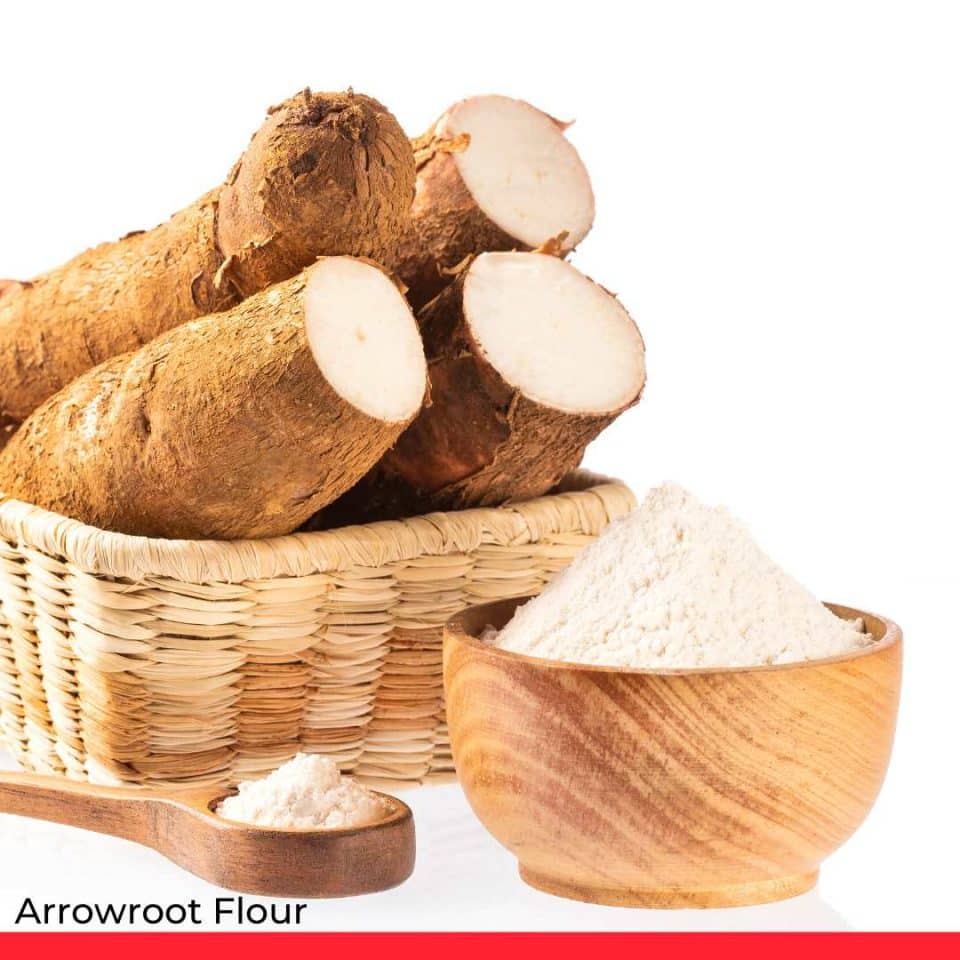
Arrowroot flour or powder is a great, versatile product. It can, however, be slightly hard to find and sometimes quite expensive. If you can find it, it makes an excellent substitute for coconut flour, making rich, dense baked goods, as well as crystal clear sauces. It is also gluten and allergen-free and has been used over the course of history for many different uses!
Arrowroot is best known for maintaining the color of whatever you are looking to thicken. Unlike cornstarch or some of the other items on this list, arrowroot makes clear, thickened sauces that you can freeze. It is worthwhile having it in the pantry!
Coconut flour is an excellent choice for its health properties and also because you can use it in raw recipes such as energy balls, no-bake cookies, vegan tortillas, and squares. It is relatively affordable and has that signature sweetness that you might expect from coconut. As mentioned, it is suitable for just about anyone and can be enjoyed by a wide array of people so it is often a safe bet!
However, if you cannot find coconut flour, we recommend using any of the ones on this list! For raw items, choose almond meal or flax seed. Use arrowroot, rice, or chickpea flour for baked goods or for thickening sauces that need to be cooked through. And use flaxseed to replace coconut flour, in combination with other flours, to make nutrient dense, tasty baked goods.

